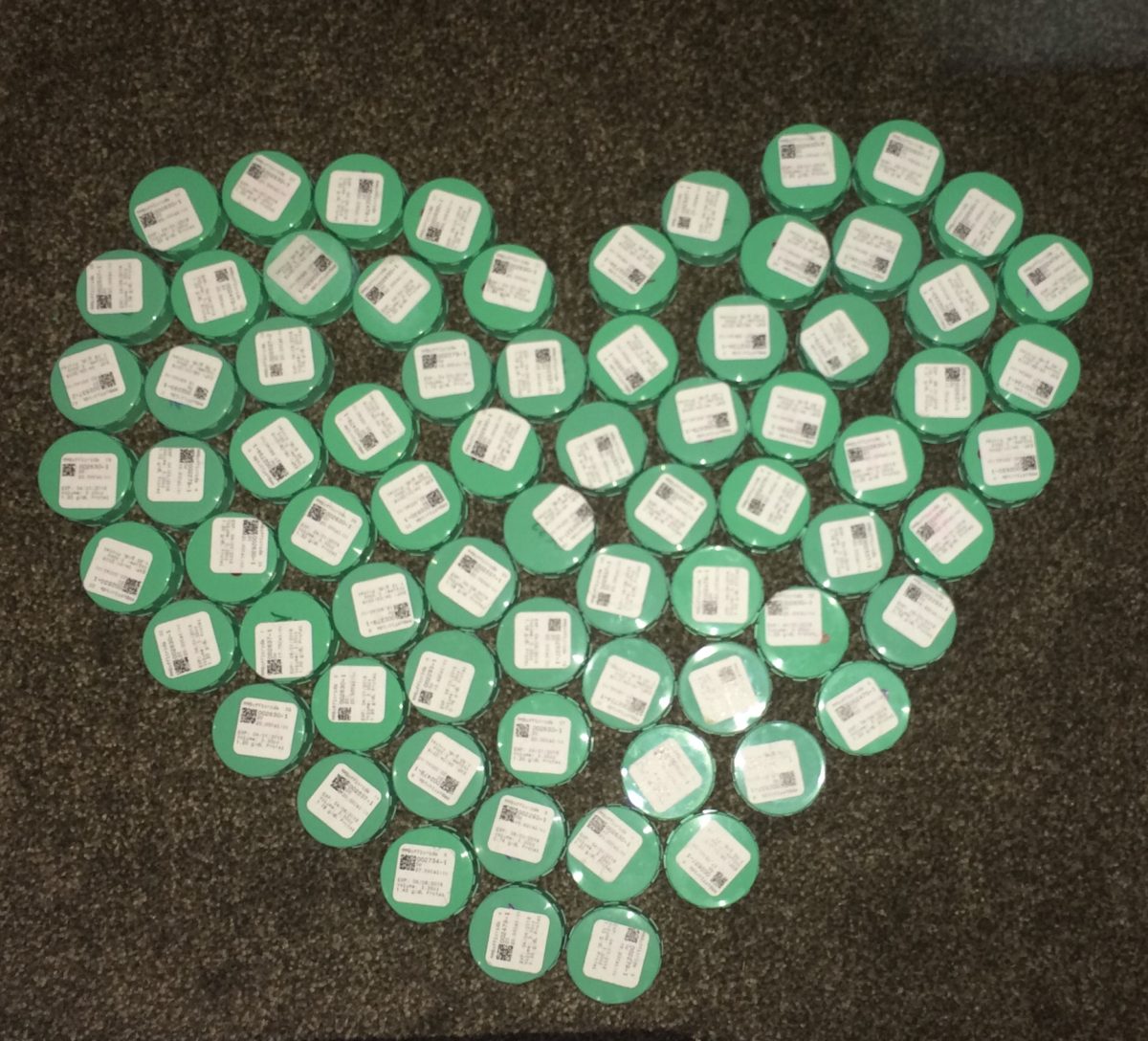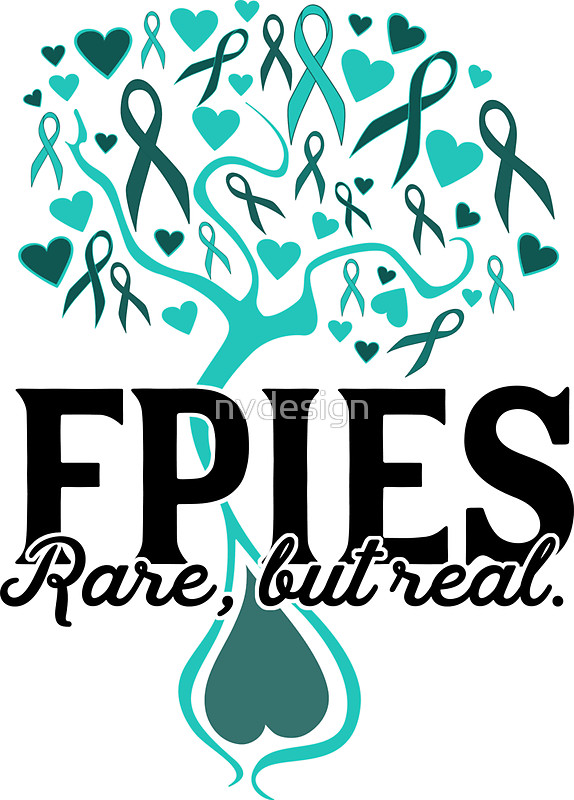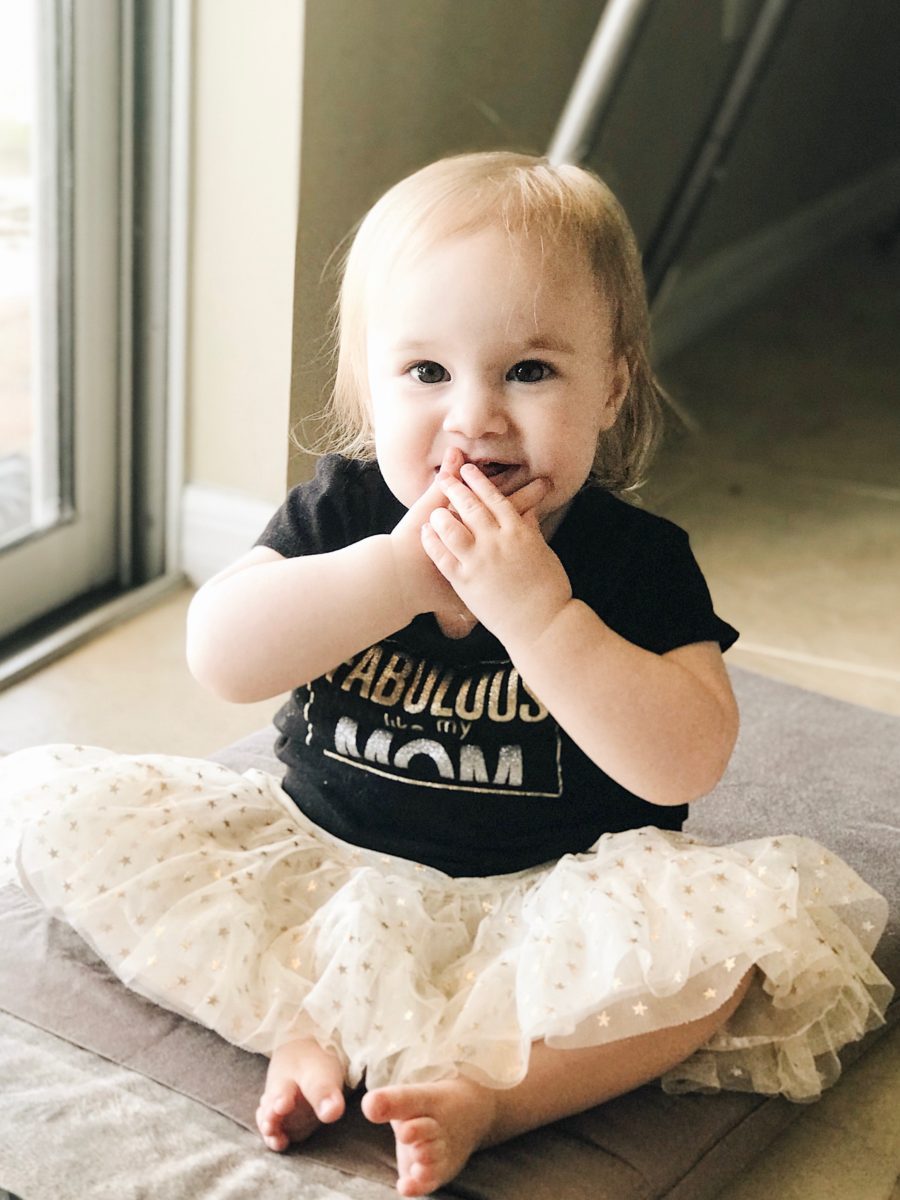
Three ounce bottles, each one contains a little bit of milk from an average of three different donors. The milk was donated from across Florida, maybe even some from a Canadian donor traveling for business, or an Austin donor visiting family and the theme parks. The milk was thawed, analyzed, and pasteurized to ensure it is safe, by a small staff and group of volunteers in Orlando. It was picked up and delivered overnight to reach an outpatient.
This is the story we know.
Jodi’s is the story we didn’t know.
For the sake of our donors who have wondered where their milk winds up, this is for you.
For our monetary supporters that give to our Babies at Home Outpatient Program, this is for you.
To the mom who said “I’m doing my best” exasperated and desperate, you are the best your children could have and this is for you.

According to the FPIES Foundation, “FPIES, or food protein induced enterocolitis syndrome, is a rare non-IgE food allergy that affects the gastrointestinal tract. Classic FPIES reactions typically occur two or more hours after ingesting the “trigger” food and typically involve profuse vomiting, diarrhea, and can progress to shock. This condition is usually seen in infants and consists of profuse vomiting 2-4 hours after ingestion of the food, soon after it has been introduced into the infant’s diet.”
In short, anything a baby eats could possibly cause severe abdominal pain and gastrointestinal distress.
I spoke with a mom who has seen this first-hand. For forty-five minutes, Jodi was brave enough to share her story with me and afterwards, I was selfishly exhausted just hearing about her life.
Jodi has two children and both of them have the very rare syndrome FPIES. Her first born, she was fortunate with. She had an over-supply of breast milk and was able to feed him until he was two years old, despite his original ‘failure to thrive’ diagnosis. Thankfully, he has since outgrown his diagnosis, although he continues to struggle with food aversions from the traumatic affects of FPIES.
Optimistically, there is a chance that a child can outgrow FPIES by three, as their immune system becomes more developed. Born in July of 2016, her second child Siena is a more severe case, finding no safe foods thus far. So far, all of her foods trials have resulted in uncontrollable diarrhea, blood in the stool, vomiting and lethargy coupled with severe abdominal pain.
“I cut so much out of my diet; dairy, corn, spicy foods, things you wouldn’t even think about I eliminated because she was reacting to my milk.” Jodi explained. Even with a severely restricted diet, she still occasionally reacts to what Jodi eats.

“Everything is trial and error; new food and various hypoallergenic formulas. Every time she reacts to something, her food aversions become so much worse. She thinks she is going to have severe pain every time we trial something new. Breast milk has been the only food source that Siena will readily accept.”
In December of 2017, even with specialized attention, Siena was in pain and Jodi’s own supply of breast milk was dropping.
“There needs to be more awareness and research out there. Honestly, the most support I have received is from a Facebook group of people like me. There are 6,000 members from across the world that you can ask questions to and find assistance from.”
“They know the reality of it and how to help because they live it every day.”
It was through this group that she started hearing about milk banks.
“As a mom, it’s so hard not to meet your baby’s basic needs, to feel like your milk isn’t enough.” Jodi didn’t know about breast milk donations before. She said it needs to be more publicized.
“I’m sure many more women out there would be willing to donate if they heard stories like ours.” Out of severe desperation, she began to research breast milk banks when her breast milk supply was not enough to feed her daughter.
“I made the first call, but there was a fear I had to get past too, not knowing where this milk is coming from. I thought, ‘We’re drinking milk from cows trusting what’s in it.’ So I had to trust the screening process [for this breast milk] and the people that donate.” Given Siena’s past difficulties, this too was a risk.
Miraculously, despite the milk donors being on varied diets, Siena didn’t react to the breast milk.
It is the one safe comfort the family can now rely on to give their baby.
“She’s growing, she’s healthy, it’s just an ongoing process. We begin by trialing a teaspoon of something new and anxiously awaiting to see if she reacts. She can react by becoming violently ill within as little as 15 minutes or it could be hours later. If in a few days she hasn’t reacted, we’ll try a tablespoon. Each reaction causes another setback and worsens Siena’s food aversion. It has also caused Siena multiple hospitalizations consisting of IV fluid hydration and gut rest. We haven’t gotten to the tablespoon phase yet, but are hopeful we will soon.”
Her next two weeks will be spent trying peaches, hoping it will be the first safe food.
“I continue to be pushed towards just giving her a feeding tube because it’ll be easier, but that will just mask symptoms for a bigger problem. I am a nurse practitioner myself, so I know that breast milk is best.”
“I felt so desperate as a mother; I felt so alone. I could not provide enough of what my daughter needed for survival (breast milk).”
“Yet in a moment of desperation, I felt completely surrounded by women. Women, that I don’t even know, making a sacrifice to help my daughter, a child who they’ve never met with a story that they’ve never heard. That’s powerful. I couldn’t be more grateful.”
Jodi is so thankful for the opportunity to work from home, as so much interferes with her life. The exhaustion comes across in her voice, as she’s averaging 3-4 hours of sleep, considering she has to pump every 3-4 hours. That’s with our help.
Throughout the week, both of her children have four different therapies with multiple appointments, as they also have special needs. Pridefully, Jodi tells me that the therapists always reflect with “I just love your family.”
Siena’s weight has maintained stable, but doctors are worried about her height and bone development. Jodi has a long road ahead of her, but from what I see, Siena couldn’t possibly be in better hands.

“Both of our children are so smart. Despite their challenges, we couldn’t be any more thankful. My husband and I are just so motivated by the improvements we see, knowing that all of our sacrifices will pay off. They’re so worth it.”
To the other side, to the families that made the decision to donate breast milk to Siena, Jodi says this:
“My husband and I are so blessed. Words cannot express what it has meant to have help maintaining her survival. That’s what this is about, her literal survival.”
To learn more about FPIES, visit:
http://fpiesfoundation.org
To learn how you can donate milk to babies like Siena, visit: https://milkbankofflorida.org/faq/donate-milk/


